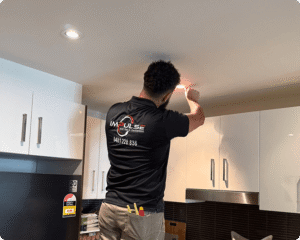Understanding Antarvacna: The Journey Within

Human thoughts often feel like a constant stream of ideas, reflections, and judgments. At the heart of this mental flow lies antarvacna, a term that refers to the inner monologue shaping how individuals experience life. While it might appear subtle, antarvacna plays a significant role in forming self-identity and guiding people toward self-actualization.
What Is Antarvacna?
Antarvacna can be described as the voice inside your mind—a companion that narrates your experiences and influences your perception of reality. This internal dialogue reflects your emotions, values, and beliefs, helping you make sense of your world. Unlike casual thoughts, antarvacna provides structure to your inner experience, allowing you to reflect on past actions, plan future steps, and evaluate your present state.
For many, this internal voice functions like a guide. When nurtured properly, antarvacna becomes a tool for growth, enabling a deeper understanding of who you are and what you aim to achieve.
The Role of Antarvacna in Self-Identity
Self-identity isn’t formed overnight. It develops through continuous reflection, and antarvacna is central to this process. Every time you question your motives or consider the impact of your actions, your inner monologue strengthens your sense of self.
For example, think about a moment when you made a difficult decision. It was likely antarvacna that weighed the pros and cons, analyzed possible outcomes, and ultimately nudged you toward a choice. Over time, these inner discussions create a narrative of who you believe yourself to be—a narrative shaped largely by the quality of your inner voice.
Antarvacna and Emotional Awareness
A healthy inner dialogue is also crucial for emotional intelligence. People who actively listen to their antarvacna tend to notice their feelings sooner and respond more effectively.
- Recognizing emotions: Antarvacna allows you to name what you feel—anger, joy, sadness, or fear.
- Regulating reactions: By processing emotions internally first, you’re less likely to react impulsively.
- Building empathy: Reflecting on your own experiences through antarvacna helps you understand others better.
When ignored, the inner monologue can become muddled or negative, leading to confusion or even self-doubt. Nurturing a balanced antarvacna creates a foundation for emotional clarity.
How Antarvacna Guides Self-Actualization
Self-actualization refers to realizing your fullest potential. To reach this stage, you must align your actions with your core values, and antarvacna plays a vital role in achieving that alignment.
A refined inner voice helps you:
- Set meaningful goals – Antarvacna clarifies what truly matters to you.
- Stay consistent – It reminds you why you started, especially when challenges arise.
- Celebrate growth – By reflecting on progress, antarvacna reinforces confidence and motivation.
In essence, self-actualization depends on a partnership with your inner guide. Without antarvacna, it becomes difficult to move beyond external pressures and discover what genuinely fulfills you.
Practices to Strengthen Antarvacna
Like any skill, the quality of your inner monologue can be developed. Consider these approaches to cultivate a stronger antarvacna:
1. Mindful Observation
Set aside moments each day to observe your thoughts without judgment. Notice the tone of your antarvacna—is it supportive, critical, or neutral? Awareness is the first step toward improvement.
2. Journaling
Writing down your reflections allows your antarvacna to take a clear, organized form. Over time, this practice helps reveal patterns that influence your decisions and emotions.
3. Affirmative Dialogue
Replace harsh internal commentary with constructive statements. A nurturing antarvacna encourages growth rather than reinforcing doubt.
4. Meditation
Quieting the mind through meditation gives your antarvacna space to develop clarity, making it easier to distinguish between fleeting thoughts and meaningful insights.
The Dual Nature of Antarvacna
While antarvacna can be empowering, it also carries risks if left unchecked. A negative inner monologue might magnify fear or create unnecessary self-criticism. On the other hand, a balanced antarvacna fosters resilience, allowing you to navigate setbacks without losing confidence.
Understanding this duality is crucial. Antarvacna isn’t about silencing doubt completely; it’s about creating harmony between caution and encouragement, ensuring that your inner voice works for you rather than against you.
Antarvacna in Daily Life
You engage with your antarvacna more often than you realize. It shows up when you plan your day, rehearse conversations, or reflect on your achievements at night. By consciously shaping these interactions, you turn mundane moments into opportunities for growth.
For instance, during stressful situations, a refined antarvacna might remind you: This challenge is temporary, and I have overcome similar ones before. Such affirmations strengthen resilience and guide constructive action.
Why Antarvacna Matters in Modern Society
In a fast-paced world filled with distractions, the voice within often gets drowned out. However, cultivating antarvacna has never been more important. It serves as an anchor, offering clarity amidst noise and helping you distinguish your authentic desires from external influences.
When individuals nurture a healthy inner dialogue, they not only enhance personal well-being but also contribute to collective growth. Communities thrive when people operate from a place of self-awareness, something deeply rooted in their antarvacna.
Final Thoughts on Antarvacna
Your relationship with your inner monologue defines much of how you experience life. By understanding and refining antarvacna, you gain access to a powerful tool for self-identity, emotional awareness, and self-actualization.
Rather than dismissing it as mere background noise, embrace antarvacna as a lifelong companion. With consistent effort, your inner voice can become the clearest guide on your journey toward becoming the best version of yourself.




